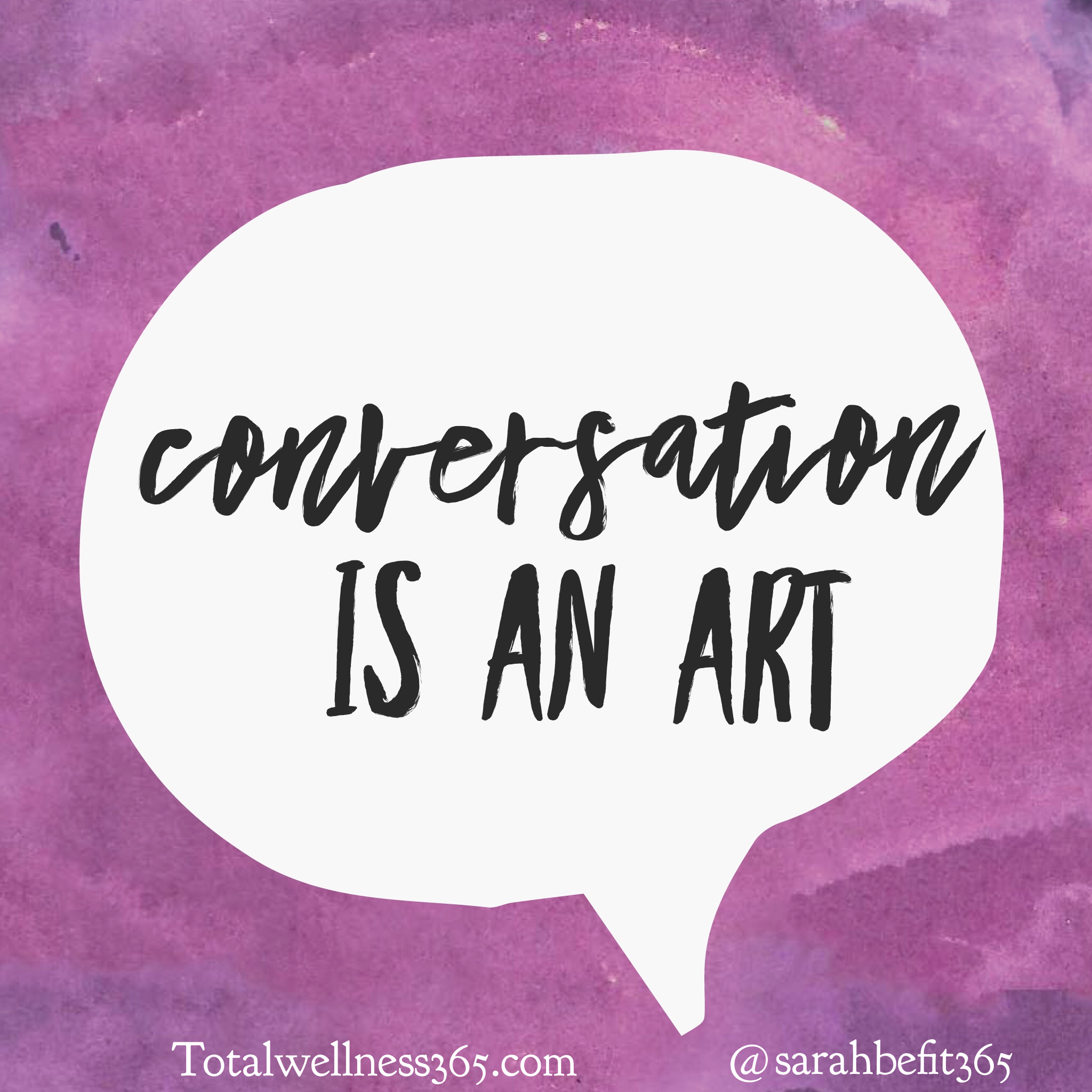I'm standing in a small conversation circle at a holiday party. People of laughing, smiling, and generally being jolly. And I'm at a loss for words. The conversation isn't intense or tumultuous in topic, in fact it's fairly innocuous. Yet I can't think of a single thing to add to the conversation. Suddenly people start to notice that I'm just hovering in the circle, laughing nervously at what I think it supposed to be funny. Then someone asks me, "What's been going on with you, Sarah?" Sheer panic erupts in my brain. My heart starts to pound and my mouth turns to a desert.
Then i wake up. Phew! it was only a dream, or should I say nightmare!
Can you believe it! I am a professional counselor. I am a skilled trainer in treatment interventions. I am a Health Coach. And I am afraid of small talk. And I am not alone.
To some small talk isn't small. It is a test of skill to navigate the extraverted world that surrounds us. The idea behind small talk is to be seen as friendly and approachable during causal social situations, such as seeing your chatty neighbor at the grocery store. It's also a way to develop deeper connections. But to a predominate introvert, small talk is a stress inducing event.
In order to have small talk confidence, there are a couple things to remember:
- It's a time-limited event. In fact small talk can last a mere 2-3 minutes for a grocery-store bump into situation and approximately 5 minutes for a party situation. Reminding yourself that it's not an eternity regardless of how it feels will help reduce some of the stress.
- Exaggerate your responses. It's simple to say "I'm fine" in response but that simply prolongs the awkwardness. Instead, Exaggerate your response by adding enthusiasm in your inflections and add some more detail. For example, when asked how you're doing say "I'm doing great! I had a chance to see the new [play/movie/concert/reading] and really enjoyed it!" This not only says that you are interesting but invites further conversation.
- Ask open-ended questions. It's a common belief that people like to talk about themselves. The caveat is that it's extroverts that like to talk, and they will gladly talk about themselves. So if find yourself in a small talk situation, ask the other person open-ended questions. Those are the ones that require more than a yes/no response. For example, "What was your favorite part of the [summer/movie/play/holidays]?"
- Be kind to yourself. You don't have to be an expert at small talk and you don't have to be hard on yourself if you're uncomfortable. The truth is, other people are too. The idea is to practice and improve without putting pressure to be perfect. Once you've moved just past your small talk comfort zone, you can politely excuse yourself from the conversation.
So take a deep breath; you are not alone. Conversation is an art form, whether it's small talk or long talks with a dear friend.


